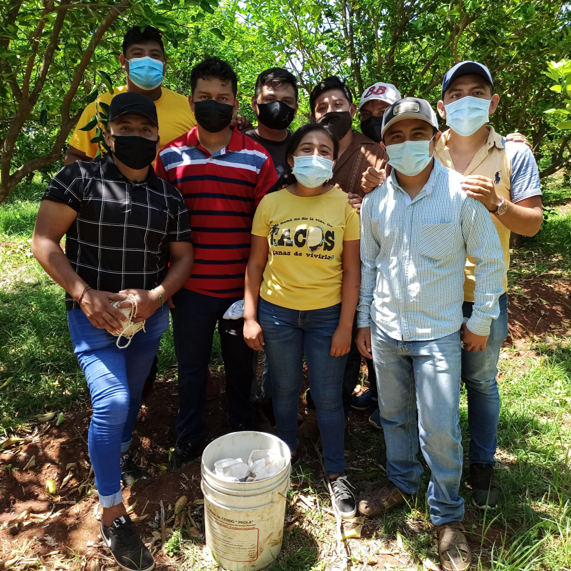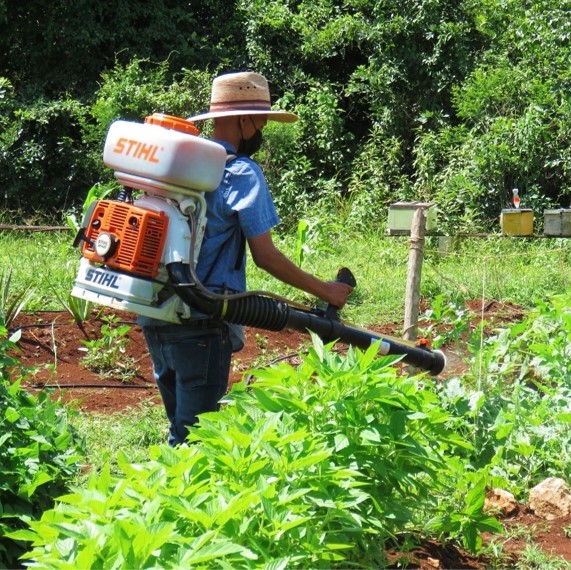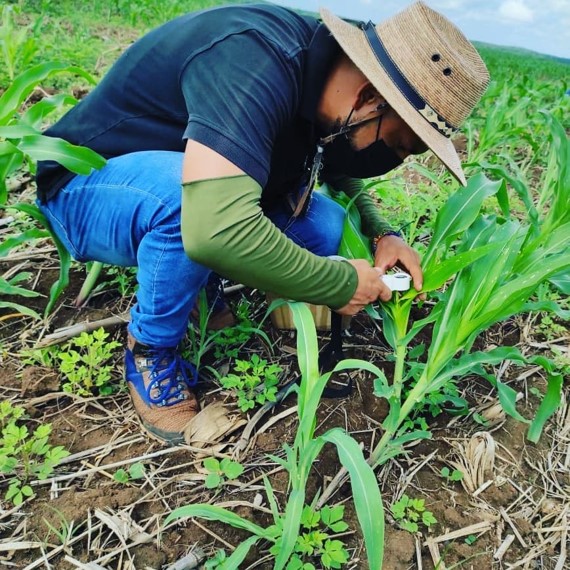As part of EARTH University’s syllabus, third-year students are required to complete a 15-week internship. This work experience is often an opportunity to open up the student’s horizons and give them a taste of “real life.” The Internship is an intensive experiential learning opportunity that is part of community engagement by the university, integrating two of the critical key elements of success.
Following the five elements of the success of Transforming Higher Education, the Technological Institute of Higher Education of Hopelchén (ITSH) has taken this opportunity to exchange experiences and knowledge between institutions, by opening their doors since 2019 to EARTH University students who want to be part of their educational experience.
This year, three EARTH students from the class of 2021: Erwin Burgos (Belize); Kendal Calvo (Costa Rica) and Jeremy Gómez (Costa Rica), carried out their internships at ITSH, making the most of their opportunity despite the difficulties that the global pandemic represents nowadays.
Erwin is originally from southern Belize, an area renowned for growing citrus fruits such as orange and grapefruit. In Hopelchén, his work has consisted of creating a forage bank in which plants are harvested to function as food for the Mexican creole hairless pig (Sus scrofa domesticus), a much-loved species at risk of extinction. Upon arriving in Mexico, Burgos, saw those in charge of feeding the pigs had to travel long distances to get their food, so adapting this land would mean a huge saving of time and resources, while the animals receive a nutritious diet.
On the other hand, Kendal is working on honey production (one of the most important practices in the area) and on the creation of a vegetable garden.
Here Calvo is making a mandala with different local seeds provided by women in the community, among these are watermelon, cucumber, corn, melon, beans, sesame and more. Everything done in the garden aims to turn it into a seed bank.
Finally, Jeremy is focusing on the production of ladybugs (Coccinella septempunctata) to use for biological control: reproduction management, diets, egg count, controlled conditions, temperature and economic balances found in different crops in the area to know if pests can be controlled naturally or some agrochemical applications will be necessary to supplement natural control.
Thank you, Erwin, Kendal and Jeremy, for sharing your experience with us!

“At EARTH we were taught to think using our own criteria. When I got here, I laid out the reasons why the forage bank must be made up of various species. I was able to train other students and they understood the benefits of the implementation. In exchange, something that I will take from here for the future is the entrepreneurial thinking of the people who live here and how they manage to diversify their income. Community members are not satisfied with just one thing to do; therefore, they’re always looking for the best way to work and generate business”.
Erwin Burgos

“In these four years of studies, field practices have prepared us to get to the real world. The university has motivated us to be proactive and understand the problems of the places where we arrive and the opportunities even without realizing it. Among ourselves we exchange opinions and give advice as something that we bring impregnated in our way of working, always thoughtful of the producers and the people in the communities who were here before us”.
Kendal Calvo

“I always knew that I wanted to do the internship in a subject of my interest, regardless of where it was. Fortunately, at the internship symposium held at EARTH, I saw the colleague who was in Hopelchén before me, and I became too interested in coming here. All the objectives that he had were met and I gained an enriching experience both professionally and personally”.
Jeremy Gómez

